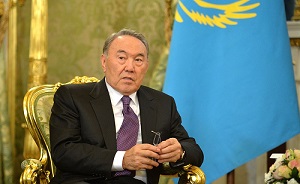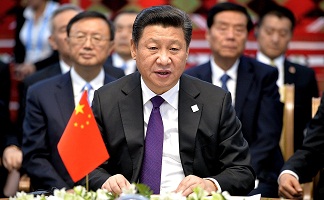Revere or Reverse? Central Asia between Cyrillic and Latin Alphabets
By Farkhod Tolipov
June 6, 2017, the CACI Analyst
In April this year, Kazakhstan's President Nursultan Nazarbaev made it clear that Kazakhstan intends to change from the Cyrillic to the Latin alphabet. Thereby, this country took a new step in the overall course of its post-Soviet development as an independent state. Kazakhstan became the third state in Central Asia after Uzbekistan and Turkmenistan that decided to undergo such a change. Kyrgyzstan will supposedly be the next country to move in the same direction. The change of alphabets was met with geopolitically saturated aversion in Russian political circles and media, in contrast to the relatively peaceful manner with which it is being introduced in the countries themselves.

China’s Long March into Central Asia: How Beijing Expands Military Influence in Tajikistan
By Fuad Shahbazov
February 21, 2017, the CACI Analyst
China's gradually increasing economic role in Central Asia since the early 2000s is unsurprising considering the region's geographic proximity to China's dynamic economy. In this context, Beijing has carefully shaped a military strategy in the region, particularly in neighboring Tajikistan. In September 2016, Beijing offered to finance and build several outposts and other military facilities (in addition to the Gulhan post, which was opened in 2012) to beef up Tajikistan's defense capabilities along its border with Afghanistan, whereas China's and Tajikistan's militaries performed a large counter-terrorism exercise in October 2016. These unexpected actions have raised concerns in Russia over rising Chinese influence in Tajikistan.

The curious case of Chinese troops on Afghan soil
By Franz J. Marty
February 3, 2017, the CACI Analyst
Overwhelming evidence – photographs, an eyewitness account and several confirming statements of diplomats and observers, among them a Chinese official familiar with the matter – leaves virtually no doubt that Chinese troops have undertaken joint patrols with their Afghan (and possibly also Tajik) counterparts on Afghan soil in the Little Pamir, a high plateau near the Afghan-Chinese border. While the Chinese source insists that such joint border patrols were based on an agreement, and therefore legal, the Afghan government steadfastly denies the existence of such patrols.
New signs of Chinese military interest in Central Asia
By Stephen Blank
January 16th, 2017, The CACI Analyst
Recent evidence shows a gradual increase in Chinese military activity in Central Asia, particularly with Tajikistan, Afghanistan, and Pakistan, although China has for years denied any military interest in the region. In October, PLA and Tajik forces jointly participated in counterterrorism exercises in Tajikistan near the border with Afghanistan, following earlier activity in 2016. Whereas Tajikistan was then silent, this time it publicized the exercises, which aroused a visible anxiety in the Russian media although the Russian government has hitherto been unwilling to comment on this issue. China’s initiative could imply a major new development in Chinese policy and in Central Asia’s overall security, with lasting implications for the region.
Uzbekistan between a new president and the same nation: is it perestroika?
By Farkhod Tolipov
January 10th, 2017, The CACI Analyst
On December 4, 2016, three months after the death of Uzbekistan’s first President Islam Karimov, the country held new presidential elections. The Prime Minister and acting Interim President Shavkat Mirziyoev became president-elect by defeating three competitors in a highly asymmetric campaign characterized by the utilization of so-called administrative resources. Yet Mirziyoev’s campaign was also an explicit demonstration of new domestic and foreign political trends in post-Karimov Uzbekistan towards more liberal reforms. The campaign also revealed rising new expectations on the part of the Uzbek nation after a quarter-century of one-person rule.







